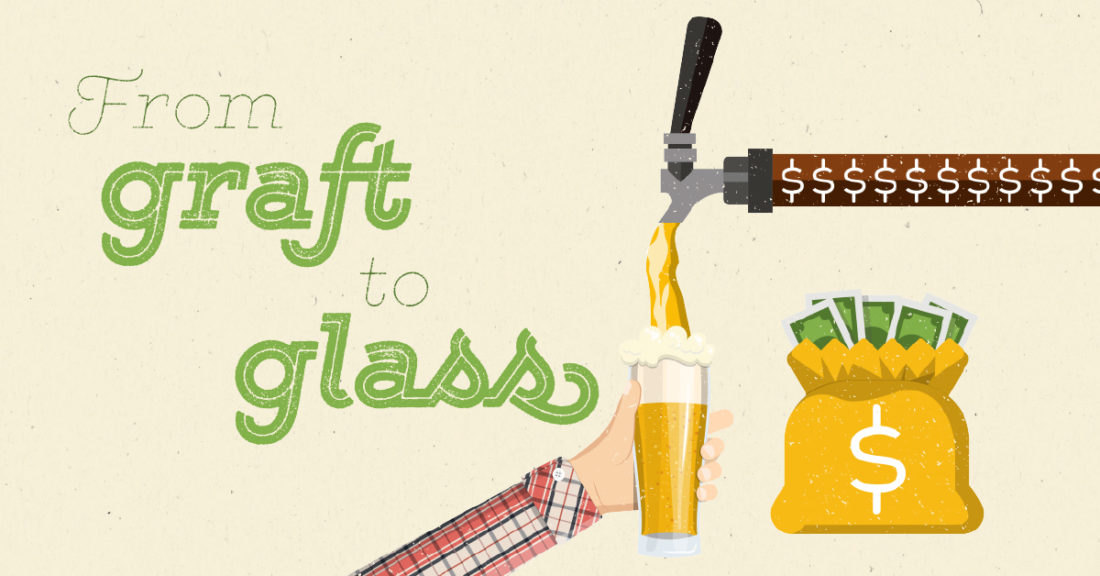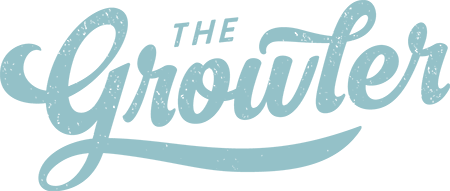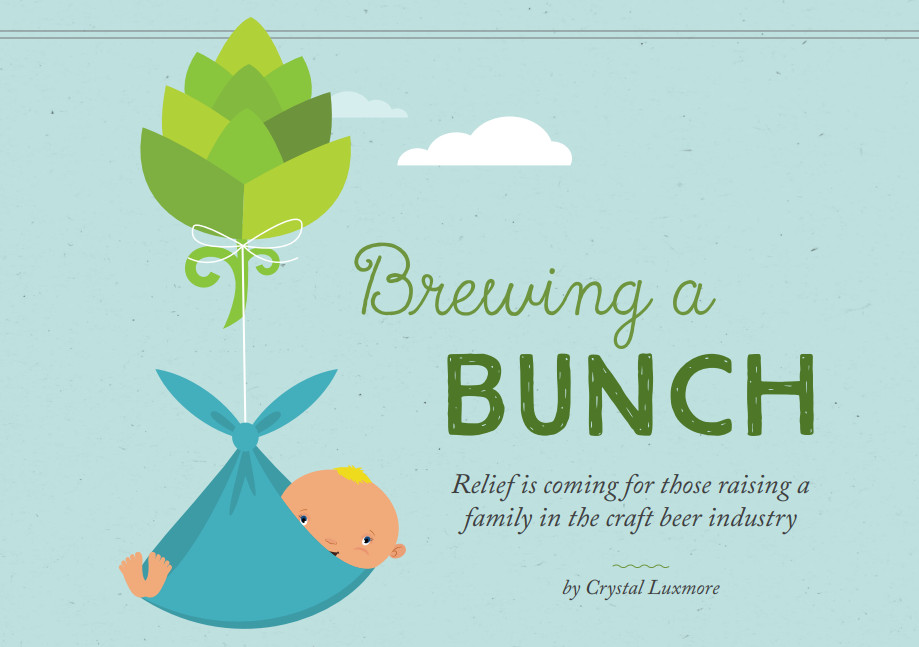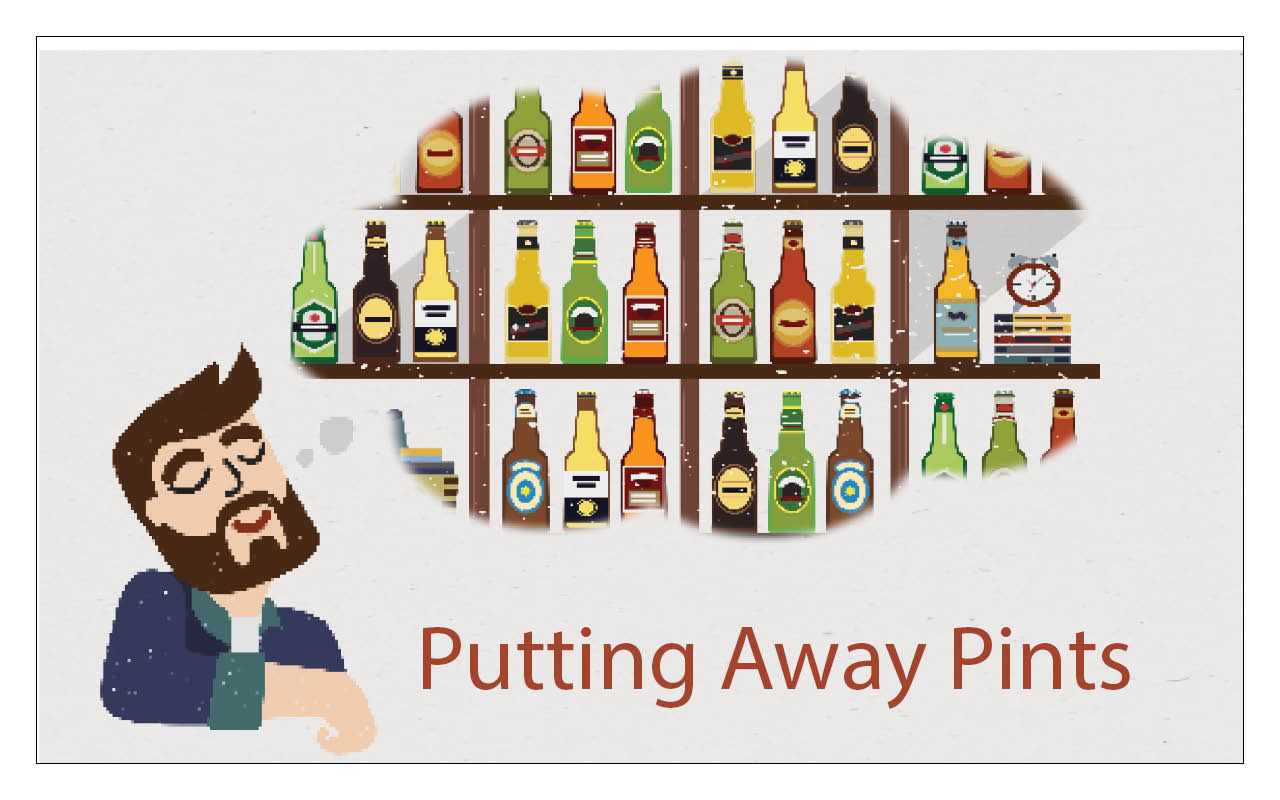
As a paying customer in a bar, you might think that the beer on tap is chosen to suit your tastes. It feels like a safe assumption that not only the food but also the beer pouring from the gleaming row of taps is selected to appease you, in order to make you spend money, return, and maybe even invite friends along.
But it usually isn’t. Those beers are there for different reasons and that bar isn’t actually a really big fan of the 12 very similar lagers that Labatt offers.
The truth is, most bar and restaurant owners treat their draught taps, and often their fridges of bottles and cans too, as not much more than prime real estate, available to the highest bidder. Brewery sales reps come into bars with an arsenal of free shit in order to “influence” their way onto these tap lines. They’re flush with “swag” like t-shirts, patio umbrellas, bar mats and chalkboards. They have budgets to offer keg deals, buy five get one free, for example; and they often simply hand over cash or offer to pay for a bar to install draught lines so that the brewery can make sure their beer is always in that line. There is no loyalty in the hospitality business. A bar manager’s love for a brewery is really only as good as the last rep who walked in the door with free tickets to a Ti-Cats game and a fucking snapback hat.
Why should we care?
This practice has historically been limited to the realm of big brewers, like Molson and Labatt, who have money to throw around. These days, craft brewers both medium and large—even the ones professing their “craft credibility”—are no longer too proud to enter bidding wars for taps, bedeck staff in branded aprons, or send a front-of-house team on an overnight bender. Of course, this is still not a game most small brewers can afford to play, and definitely not for very long. If your game is to throw free shit and trips at bars, you’re never going to compete with bigger breweries who have massive budgets—let alone the mega-breweries who throw so much cash at marketing that they literally have arenas and stadiums named after them. It’s not sustainable, and it ends up hurting most brewers more than it helps.
You might be tempted to say that this just sounds like normal sales activities and pretty savvy business, and so I’d like to suggest that this practice is at the heart of keeping Ontario from having more great beer. Sure, if you’re the happy-go-lucky Joe Schmoe who saddles up to the bar for a pound of sloppily-sauced wings and whatever lager is on special, this might seem like a non-issue. Beer is beer, you might say. It’s cold, these wings are delicious, and my bartender has a low-cut top. I’m doing fine. Who cares how this keg got here?
I’m willing to bet that you do. You’re reading a beer magazine, after all. You give a shit about what you drink. And we should also object that a lot of the decisions being made about what beer is available at your local bar, your go-to franchise restaurant, or even your favourite semi-decent beer bar, aren’t being carefully curated by a discerning bar manager. They aren’t eager to please sophisticated customers like yourself, and they likely aren’t even thinking about what the Joe Schmoes of the world want. Instead, the draught lineup is likely determined by the will of greedy bar managers and restaurant owners who choose what you will get to drink based on personal gain, and that, my discerning friend, should piss off all of us.
Because not only does it mean that someone else chooses what you can pick from when you get to the bar, it is also, arguably, dictating the offerings that brewers can produce. Making good beer, you see, costs money. And when the practice of getting product into the market (i.e. your local) is reduced to being able to bribe or induce your way onto draught lines, it doesn’t leave much room for small brewers to experiment. All that market pressure for lower margins (or sports-ticket graft) actually reduces the wiggle room and flexibility that breeds innovation and results in the weird, wacky, and wonderful beers we craft beer drinkers love to try. So everybody ends up making the same shit.
What do Ontario craft brewers have to say?
Jason Fisher is the owner of the Indie Alehouse, a small brewpub in Toronto, and he is convinced that the widespread practice of brewers purchasing draught lines is slowing innovation. “Less than six years ago,” he says, “Ontario’s options were severely limited. No one made a year-round porter, there were very few IPAs that tasted like real IPAs, there were no farmhouse beers, no milkshake beers, sours, or wine-barrel beers. They didn’t just show up because we finally invented them. It’s because they cost more to make and so why would a brewer bother spending more to create a beer they couldn’t sell to bar managers who were looking for a payoff to put the beer on tap?”
Isn’t this illegal?
And aside from limiting choice and stunting innovation, it’s also worth noting that selling your taps to the highest bidder is illegal.
According to Ontario’s Liquor Licence Act:
“A manufacturer of liquor or an agent or employee of a manufacturer shall not directly or indirectly offer or give a financial or material inducement to a person who holds a licence or permit under the Act or to an agent or employee of the person for the purpose of increasing the sale or distribution of a brand of liquor.”
In other words, it is against the law to buy from the brewery willing to give you the best keg deal (we have legally mandated minimum pricing to prevent this), the most glassware, or the all-expenses-paid staff trip to cottage country. And yet, I challenge you to find a bar in this province that hasn’t been decked out with a certain brewery’s branding gratis or hasn’t had a bar manager attend a big-name concert. It happens every day.
So what’s to be done about it?
Well, the simplest solution is to snitch. The Alcohol and Gaming Commission of Ontario (AGCO) is the regulatory body charged with policing these practices and they claim to take infractions of the Liquor Licence Act very seriously. Ray Kahnert, a Senior Advisor in the AGCO’s Communications and Corporate Affairs Division recently confirmed for me that “Ontario’s Liquor Licence Act (LLA) not only prohibits manufacturers from offering [incentives], it also prohibits licensees from directly or indirectly requesting any financial or material benefit from a manufacturer.” Meaning that bars and restaurants are just as accountable for soliciting or accepting payola as breweries are for offering it. Kahnert also confirms for me that if the AGCO becomes aware of a violation as a result of an inspection or complaint, they “typically take a progressive approach to achieving compliance” which can include “a warning letter, a monetary penalty, a suspension of their licence for a period of time, or a revocation of the licence.”
It’s probably worth noting that Kahnert also confirmed to me that literally zero fines have ever been issued related to this rule, BUT an update of the AGCO’s web presence means that submitting complaints anonymously is easier than ever. So if you are a consumer who suspects foul play, or a brewery who is constantly being asked for freebies, you can now report the activity to the AGCO online without anyone knowing it was you.
What can we do?
Finally, the best way to stop the small-brewery-hurting, innovation-squashing practice of draught line payola is to simply drink at good bars.
There are a handful of great beer bars in this province that pay breweries a fair price for their product. Natalie Schnurr is the co-owner and general manager of Arabella Park, in Kitchener.
“The breweries we deal with don’t need to offer discounts or incentives because they supply incredible beer,” she says. “And our customers can taste that. They understand that we offer the best beers we can get our hands on and are okay with paying for quality—at what we believe to be a very fair price.” If you’re not sure if the bar you frequent is on the level, ask. Tell them about the beer you want to drink and that you choose to patronize places that pay suppliers fairly. Maybe also mention that bars who think otherwise are hampering our province’s awesome and otherwise flourishing craft beer scene. And shit, it might not hurt to let bar managers know that the AGCO has a mechanism to report those soliciting kickbacks.
Because if bars no longer feel empowered to illegally auction their draught lines off to the beer companies willing to ply them with the most swag, trips to ball games, or free kegs of beers, they might just start to listen to another influential group: You, their customers.



